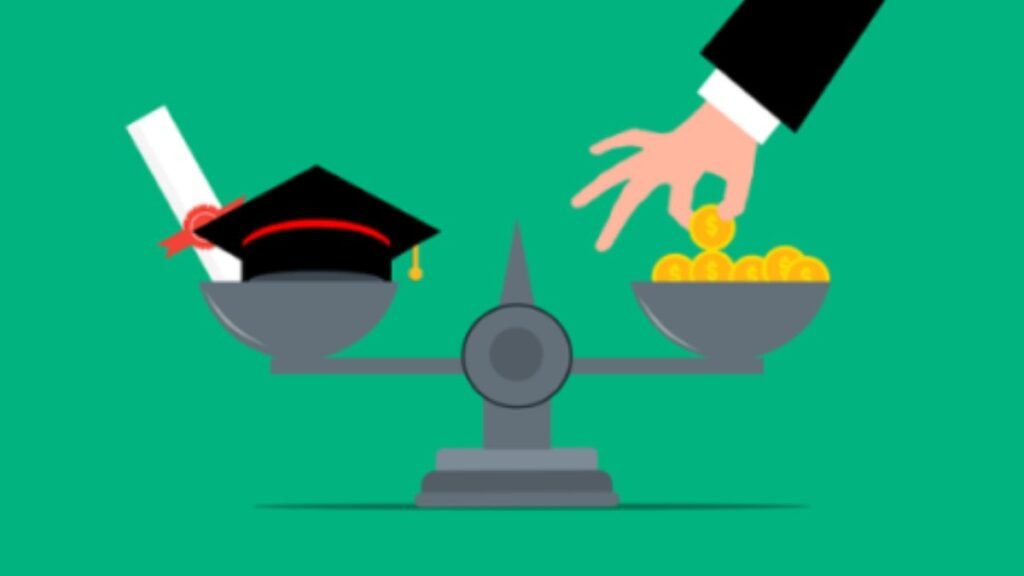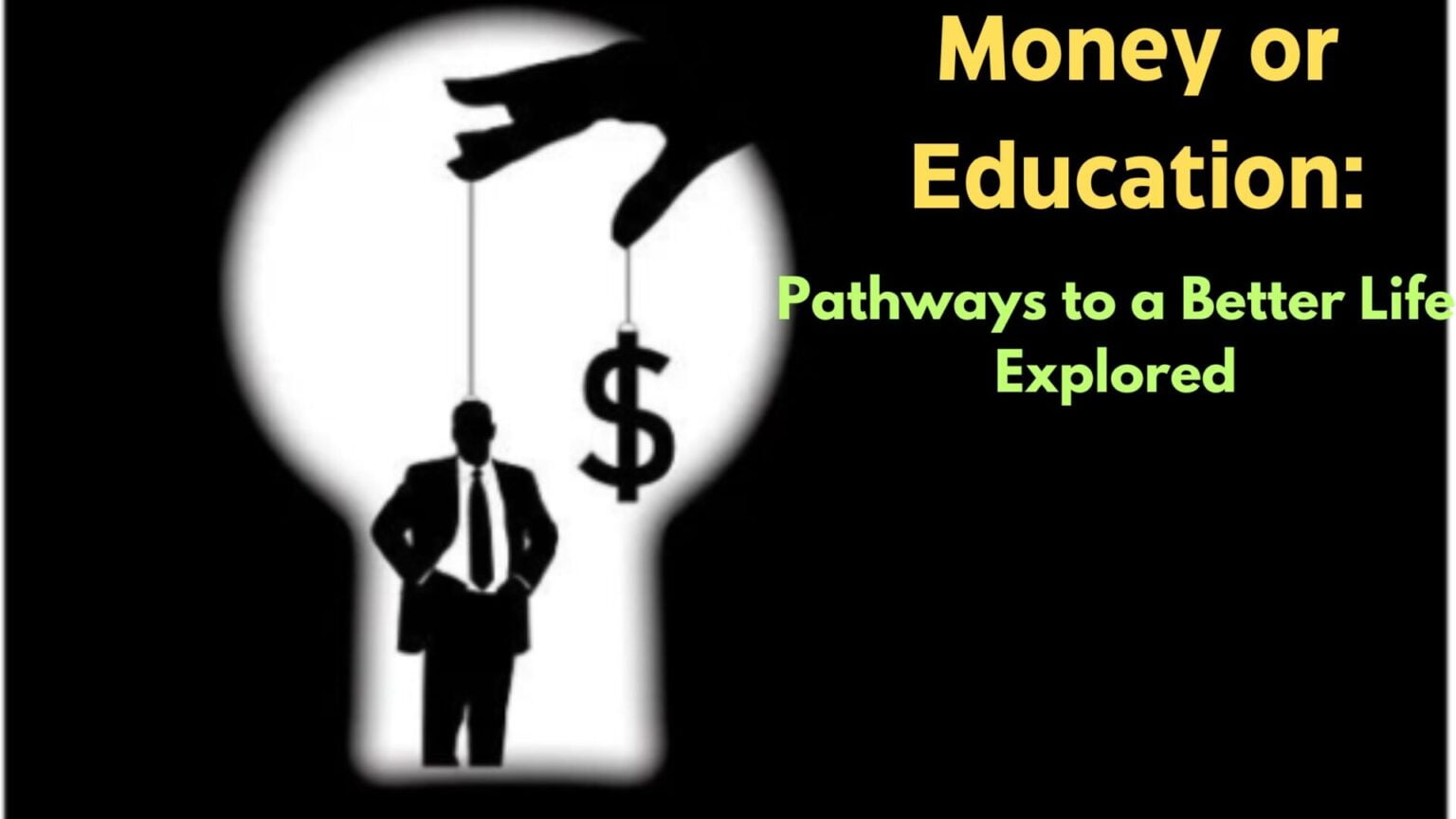Introduction
Money or Education: Pathways to a Better Life Explored

In the pursuit of a better life, two significant factors often come into play: money and education. These two elements hold the power to shape individual experiences and open doors to opportunities. However, the interplay between money and education is complex, and understanding their roles is essential for making informed life choices. In this article, we delve into the dynamics of money and education as pathways to a better life.
How do money or education intertwine in the quest for an improved life? In what ways can these influential factors shape individual experiences and provide avenues for opportunities? Considering the intricate interplay between money and education, why is it crucial to grasp their respective roles to ensure well-informed decisions in life?
The Power of Education
Education as Empowerment: Education is often referred to as the great equalizer. It equips individuals with knowledge, skills, and perspectives that enable them to navigate life’s challenges. A solid education not only opens doors to various career options but also enhances critical thinking, communication skills, and problem-solving abilities. These qualities empower individuals to make informed decisions and contribute meaningfully to society.
Expanding Horizons: Education has the potential to broaden horizons. It exposes individuals to diverse cultures, ideas, and fields of knowledge, fostering a well-rounded perspective. This exposure encourages empathy, tolerance, and a deeper understanding of the world, ultimately enriching the quality of life.
Breaking Barriers: Education can break the cycle of poverty and social inequality. It provides the tools to overcome economic limitations and offers opportunities for upward mobility. Education empowers individuals to secure better job prospects and higher earning potential, leading to financial stability and an improved standard of living.
The Role of Money
Financial Freedom: Money is undeniably essential for meeting basic needs and achieving financial security. Adequate income allows individuals to provide for themselves and their families, ensuring access to necessities such as food, shelter, and healthcare. Financial freedom eliminates stress related to survival, allowing individuals to focus on personal growth and happiness.
Enabling Opportunities: Money serves as a facilitator of opportunities. It provides the means to invest in personal and professional development. Whether it’s pursuing further education, starting a business, or exploring new experiences, having financial resources can be a catalyst for growth and self-discovery.
Quality of Life: Money can enhance the overall quality of life. It enables access to recreational activities, cultural experiences, and travel. It provides the resources to enjoy leisure time, create cherished memories, and nurture personal well-being.
Balancing the Equation
The question of whether money or education is more crucial for a better life doesn’t have a one-size-fits-all answer. The reality is that both factors play interconnected roles, often reinforcing one another.
Education Amplifies Money’s Impact: Education can amplify the impact of money. A well-educated individual is more likely to manage their finances wisely, invest prudently, and leverage opportunities effectively. Education enables individuals to make informed financial decisions that align with their long-term goals.
Money Facilitates Education: On the flip side, financial resources can facilitate education. Scholarships, grants, and financial aid programs make higher education accessible to those who might not have the means otherwise. Money can ease the burden of student loans, allowing individuals to pursue their academic aspirations without excessive financial stress.
The Synergy for a Better Life
In the grand scheme of things, the ideal scenario involves a synergy between money and education. While education equips individuals with the tools for personal and intellectual growth, money provides the practical means to put those tools into action.
Investing in education early in life can set the stage for greater financial stability and career success. Likewise, building a strong financial foundation can provide the resources needed to pursue education and personal development throughout one’s lifetime.
Which is most important education or money?
The question of whether education or money is more important is a complex and subjective one. Both education and money have significant roles to play in a person’s life, and their importance can vary based on individual circumstances and values. Here’s a closer look at each aspect:

Education: Education is often regarded as a fundamental tool for personal growth, development, and empowerment. It provides individuals with knowledge, skills, critical thinking abilities, and exposure to a broader world view. Education can:
- Empowerment: Education empowers individuals to think critically, make informed decisions, and contribute to society’s progress.
- Career Opportunities: Higher levels of education can lead to better career prospects and earning potential, providing financial stability.
- Personal Fulfillment: Learning and acquiring knowledge can bring a sense of personal satisfaction and a broader understanding of the world.
- Social Mobility: Education can break the cycle of poverty and offer opportunities for upward mobility, contributing to social equality.
Money: Money is a practical necessity that allows individuals to meet basic needs, attain financial security, and access opportunities. Money can:
- Basic Necessities: Money is essential for providing shelter, food, healthcare, and other fundamental needs.
- Quality of Life: Adequate financial resources can enhance the overall quality of life by enabling access to experiences, leisure activities, and cultural pursuits.
- Investment: Money can be invested in education, personal development, and business ventures, fostering growth and advancement.
- Security: Financial stability provides a safety net during emergencies and unexpected events, reducing stress and promoting well-being.
In reality, the relationship between education and money is intertwined. Education can empower individuals to make the most of financial resources, while money can facilitate access to quality education and personal development opportunities. It’s not a matter of choosing one over the other, but rather recognizing that they can complement each other.
Ultimately, the importance of education and money can depend on individual goals, values, and circumstances. Some individuals might prioritize education as a means of personal growth and empowerment, while others might focus on financial stability to ensure a comfortable life. The optimal approach is to find a balance between the two, leveraging education to make informed financial decisions and using money to invest in personal and intellectual growth.
In conclusion
The relationship between money and education is intricate and symbiotic. Both are valuable assets that can lead to a better life when harnessed strategically. By recognizing the potential of education to empower and money to enable, individuals can chart a course toward a more fulfilling and prosperous future.






